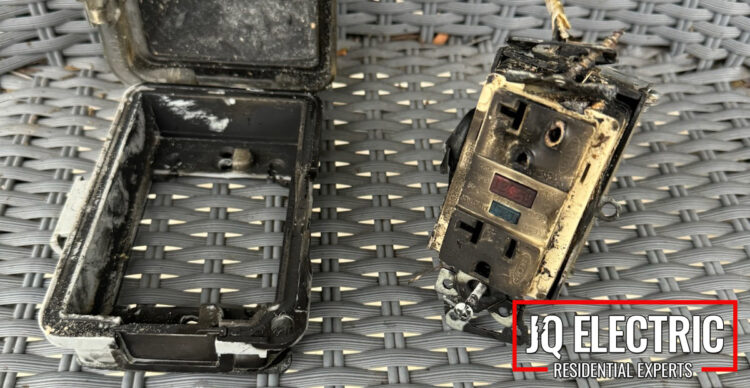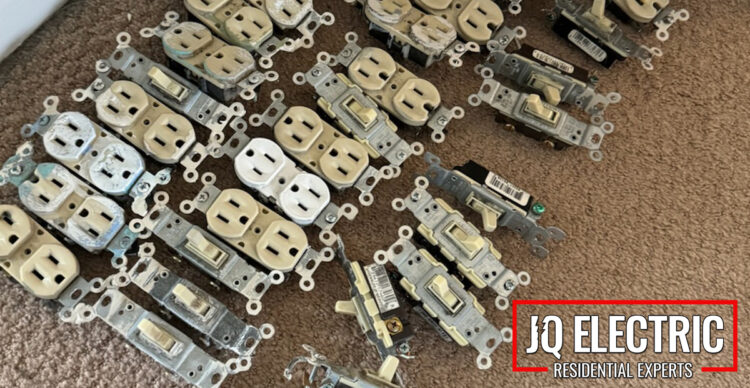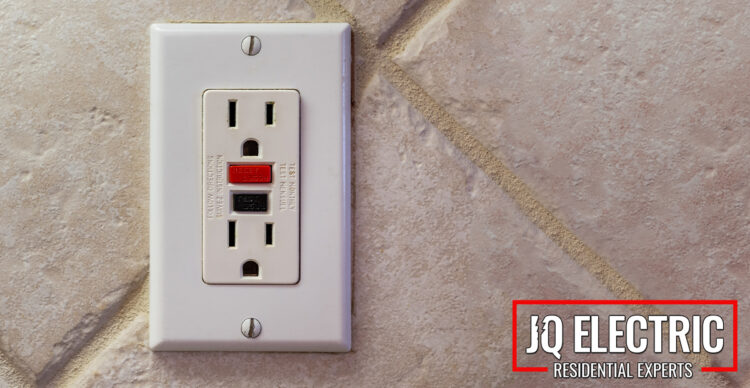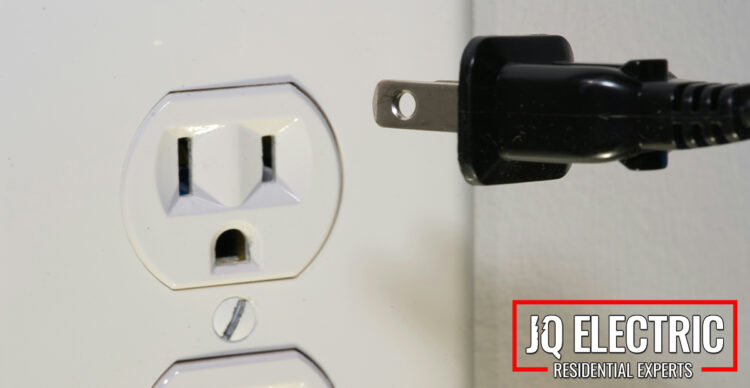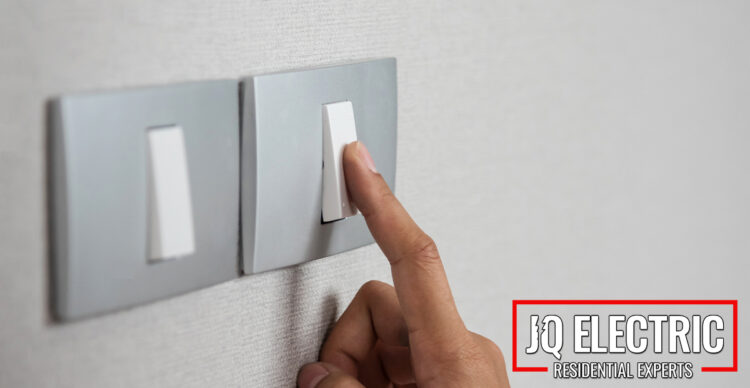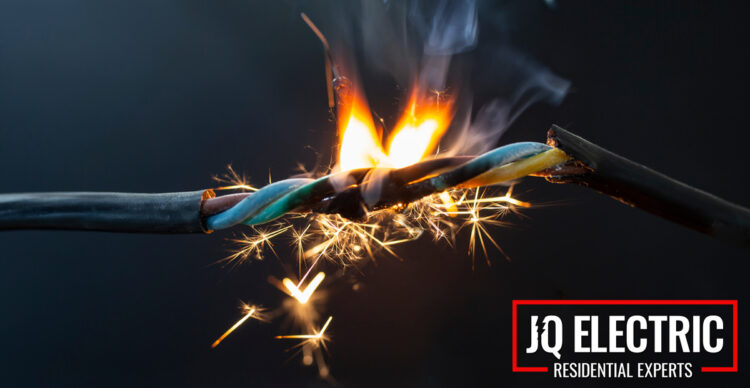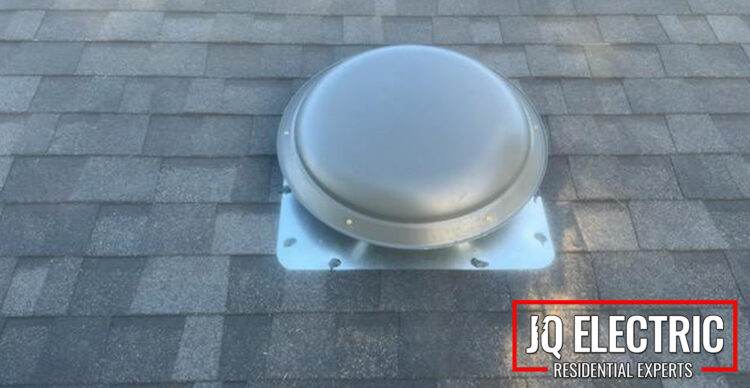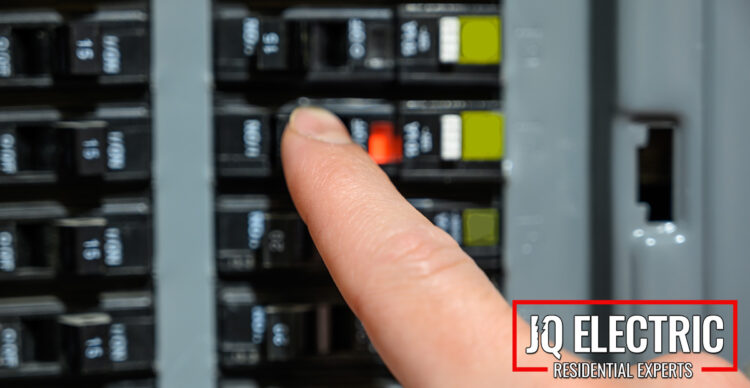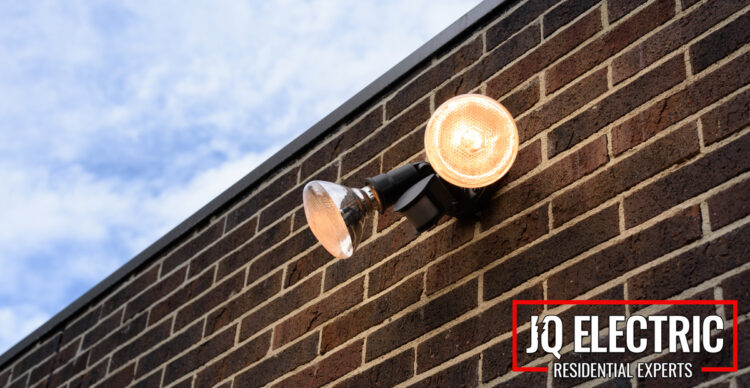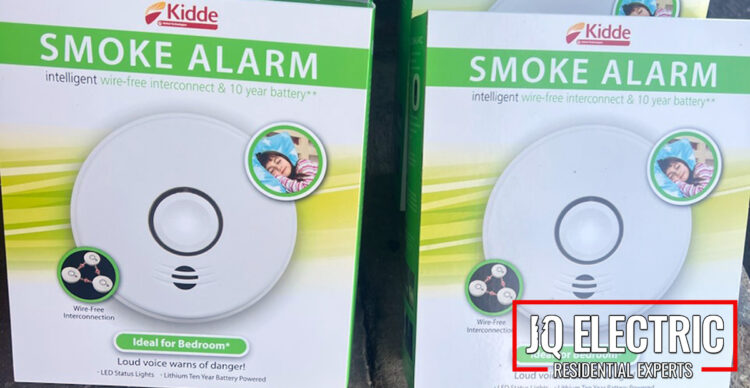Do you have a warm electrical outlet? What does it mean, and how do you handle it? Electricity is one of those things we often take for granted. We flip a switch or plug in a device and expect everything to work smoothly. But what happens when you notice something unusual, like a warm electrical outlet? Should you be concerned? Let’s explore what it means and what steps you should take to ensure your home’s safety. What Causes a Warm Electrical Outlet? Several factors can cause a warm outlet, and it’s not something to ignore. Electricity generates heat as it
Learn More →Your electrical outlet is not working! This problem might have existed forever or be a recent development. Regardless, several things can cause electrical outlets to fail. These include issues with circuit breakers, outlets that have worn out, GCFIs, or more serious wiring issues. When you face dangerous situations with your home’s electricity, getting help from a professional is always safer. The Electrical Safety Foundation International (ESFI) reports that 51,000 home electrical fires happen yearly. Many of these accidents start with problems in electrical outlets. If you try to fix electrical issues without the proper skills or tools, you risk getting
Learn More →Have you ever noticed that some of your outlets have reset buttons while others don’t? Those particular outlets with extra buttons are called GFCI (ground fault circuit interrupter) outlets, and they protect you from being shocked. Not all types of outlets are the same or offer the same protection. These GFCI outlets prevent electrocution. If a person’s body is shocked, the GFCI senses this action and cuts off the power before anyone can get injured. The National Electrical Code® requires GFCIs in particular locations of the home, specifically those that may be in contact with water. These areas mainly include
Learn More →Electrical outlets are standard in most United States homes. Also known as sockets or power outlets, they do as their name suggests and bring electricity into buildings. These electrical outlets allow us to power all our devices daily without thinking much about it. Flipping on the lights, watching television, blending a smoothie, or keeping that cell phone charged all start the same way: with an electrical outlet. Standard Electrical Outlets Electrical outlets come in two standard forms in North and Central America (as well as parts of Europe, Asia, and South America). Type A consists of Two flat parallel pins
Learn More →Light switches have an important job – to turn on or off the lights. But besides lighting up the room, there are various types of light switches. Each switch serves a different purpose. 1. Single-Pole Switches A single-pole switch is one of the most common types of light switches used in residential electrical systems. It is a simple on/off switch that controls the power flow to a single lighting fixture or electrical outlet. The term “single-pole” refers to a switch with only one set of electrical contacts. 2. Three-Way Switches A three-way switch is an electrical switch used to control
Learn More →Residential electrical codes are in place to protect property and its occupants. The NEC, National Electrical Code, is also called NFPA 70. The NFPA, National Fire Protection Agency, publishes this standard list of specifics for safe installation. It’s updated every three years, occurring most recently in 2023. Reputable, licensed electrical contractors follow these standards to the letter. Electricity is very unforgiving. There’s no wiggle room for error. House fires can destroy property and its occupants. Have An Electrical Whole-House Inspection Have you lived in your home for many years? You might not have any issues if you bought it brand-new
Learn More →Attic fans cool your house during the dog days of summer. Blistering temperatures are uncomfortable and make your air conditioning unit work harder to keep the interior living areas pleasant. There are several benefits to having an attic fan installed. Hot and stagnant air can cause damage without an attic fan to help during heat spells or hot periods. Read on for more information, and remember that regular service is essential for existing attic fans. How Attic Fans Work Your attic space gets filled with stale, hot, and humid air that can cause damage at many levels. Most homeowners store
Learn More →Do you have a circuit breaker that keeps tripping? Besides being annoying, it indicates an electrical issue you must address. Flipping the switch that has cut off the lights is easy, but electricity is nothing to mess around with. There are several reasons a circuit breaker will trip. You can try to identify the problem yourself by checking a few reasons that typically trip a breaker. Call a licensed electrical contractor if the idea of any electrical DIY project makes you break out in a sweat. Is Circuit Overload To Blame Circuit breakers trip whenever electrical currents are too high
Learn More →Commercial outdoor security lighting is an excellent deterrent to thieves attempting to enter a property. Commercial property owners need to consider numerous aspects of a lighting system to deter unwelcome intruders. There are many types of equipment and different areas to illuminate. When adding a whole new lighting system, your electrical contractor may recommend that you upgrade your electrical panel. Consult a licensed contractor for professional recommendations to ensure you are purchasing the best system for your building. Timing And Lighting Placement While it may seem like a good idea to illuminate all areas and keep the lights on nonstop,
Learn More →What to know about smoke detectors is more complicated than in years past. You’ll want to acquaint yourself with up-to-date information before you upgrade to a new setup. Technology has come a long way, offering numerous features in smoke detectors that were never available before. You can have new smoke alarms wired through your entire home and garage. A licensed electrical contractor will ensure your home system is wired correctly for maximum safety. Smoke Detector Requirements And Recommendations Per the NFPA, National Fire Protection Association, safety requirements aren’t complicated. Each bedroom, basement, every level in your home, and outside each
Learn More →
